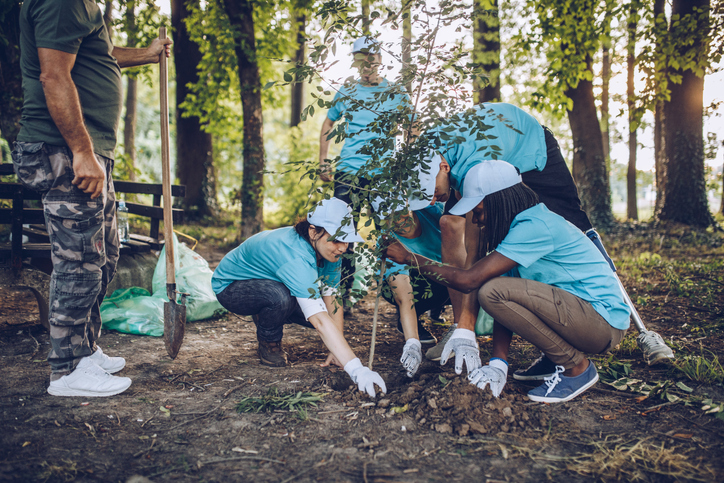A universal truth we all must accept is that you can’t choose your family.

When you’re born, you have no control over what group of people you will spend your formative years with. Experiencing a bad blood tie can leave us with a lot of resentment and emotional scars we end up nurturing long into our adulthood. After having a bad experience, you may think you’re better off alone, but this isn’t true. When healing and stepping away from toxic influences, it’s essential to have support and good people on the path with you. If you think it sounds nice to have a support system as you move away from your blood relatives and the trauma they caused, we have some actionable tips to help you get there.
1. Join a club or group centered around your hobby.

A great way to meet people who could be your supporters is to get out there and do something you’re passionate about. Passionate people tend to be more popular, and bonding is much easier when you have a common thread.
2. Accept help when you need it.

It can be hard to let other people step in and lighten your load when you’ve spent years hurt by those closest to you, but try not to harden your heart. You may need to learn to ask for help and accept it when offered. Not every person you meet will be like your family, and there is no shortage of people who will step up to help you in your time of need.
3. Stay in touch and improve communication.

Once you meet some people you gel with, try to keep up the efforts to stay connected. Reach out and plan outings when you can, especially around times of the year you usually spend with family. Becoming reliable will attract more trustworthy people to you, which can be invaluable while building your social network (and your professional one!).
4. Find a support group or safe space.

You’re not the only person who may have had a difficult time with their blood relatives. There are lots of support groups for those who have either lost family members or chosen to separate. Seeing people who share a background and how they have coped with it will give you inspiration and hope.
5. Think critically about what you want.

Separating from a toxic family can leave you feeling like you don’t have an identity outside of the structure you’ve experienced. This is why self-reflection is so important to building a support system. Knowing what you need and what you value can make finding people who are a good fit easier for you.
6. Connect with a professional who can help you.

Therapy is an excellent option for people who are struggling with a separation from their family. Despite being a hard pill to swallow, it’s important to prioritize healing, and sometimes, a professional perspective is needed to do that. Therapists can also help connect you to other valuable resources and people who can help you succeed.
7. Volunteer.

Giving back is good for you and is a positive opportunity to meet people with a giving mindset. Volunteering for an organization that resonates with your values or helps others in your situation is a great way to share an experience and do your part in stopping the cycle of abuse.
8. Improve yourself.

Speaking of doing your part, you have to do your part to become a person worth supporting. You can take steps to improve your situation through therapy, self-reflection, or effort to branch out and help those in need. The people in your corner will be all the more proud of you.
9. Change your focus.

If you focus too much on your family and the disappointment and pain of what you went through, it might be time to keep your mind elsewhere. You have to let go and move on. When we leave something behind, our brain craves a replacement; finding that replacement will help keep our minds active and off the things that hold us back.
10. Find people who share your current views.

Whether your family is anti-LGBTQIA+ or simply not willing to accept your career choices, there are people out there who will validate you and your preferences. Seek them out because these people will encourage you on your quest to be the best and most authentic version of yourself.
11. Take your time.

As you open yourself up to the world, you will meet people from different walks of life, but not every single experience will be good. As sad as it may be, not every relationship is meant to last, and not every opportunity will push us to a better place. It’s a good idea to take it slow and realize that the process of healing and building our support system will not happen overnight.
12. Rewrite old habits and avoid toxic patterns.

After living in a toxic situation for a long time, we tend to find less-than-ideal ways of coping or discover unpleasant triggers that make it hard for us to go out and deal with people. Acknowledging these behaviors and not letting them control or define us is crucial. We can be more than our trauma.
13. Meet your neighbors or other people in the community.

If you can’t move away from your family or go very far outside your community to meet people, you can take comfort in knowing that sometimes the support system you need is closer than you think. Neighbors, friends from school or church, and other members of the community may be able to offer a listening ear or a break from some of the chaos you experience at home.
14. Feel your feelings.

It can be a struggle to express how you feel while dealing with your family, but allowing yourself the opportunity to express yourself is a huge part of healing. The people in your life who support you will be there while you pick through the rubble and hopefully find tiny glimpses of insight and comfort in your past.
15. Be firm about your boundaries with your family.

If you have taken the leap in stepping away from your family for your well-being, it can be difficult to navigate where and when you’re willing to see them or what type of behaviors you’ll accept. However, deciding what boundaries you need to set and sticking with them is important, as it’s the only way you can sustain a relationship with them at all.
16. Be the person you need.

Having support can build you up to the point where you start to let go of some of the negativity and callousness you may have developed from dealing with your family. The person who emerges will feel stronger, more capable, and happier than you were before, and hopefully, will feel like someone who can carry you through life’s challenges and support the people who helped you make it this far.
Enjoy this piece? Give it a like and follow PsychLove on MSN for more!



